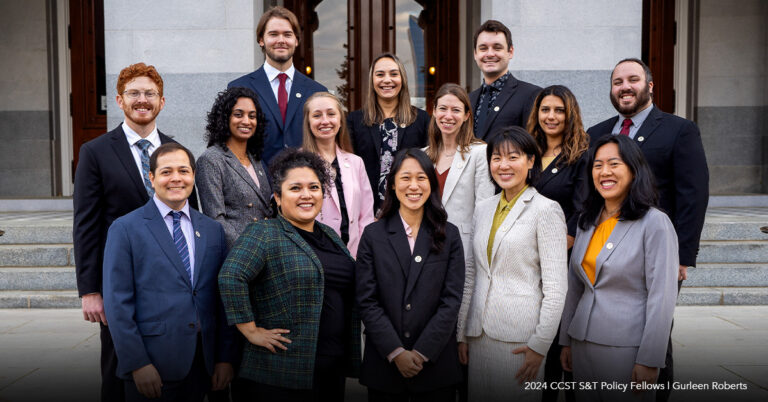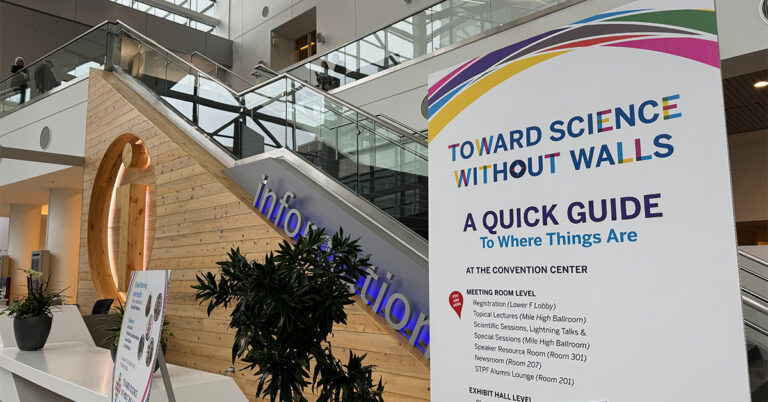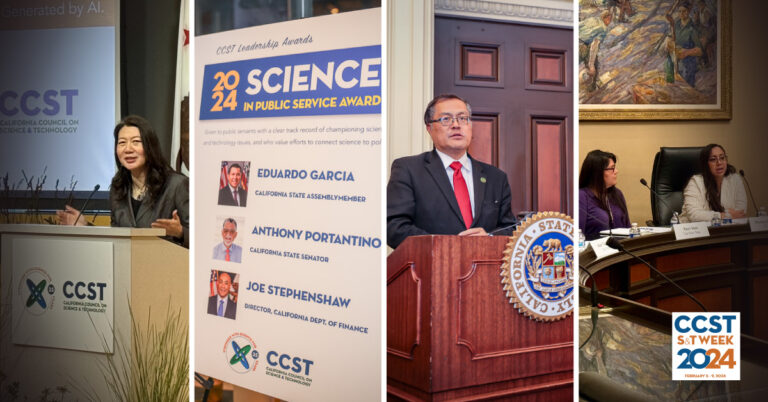Update: Applications for the CCST Science & Technology Policy Fellowship Have Closed
UC Santa Cruz Engineering Students Tackle Real-World Design Challenges
June 7, 2012 | CCST Newsroom | Contact: M. Daniel DeCillis

Ensuring that California’s education institutions, research labs, and industries work collaboratively is important to translate the state’s research into products that generate jobs for Californians. A new program at in the Baskin School of Engineering at UC Santa Cruz has offered its students just such an opportunity to work with companies such as Oracle, Texas Instruments, Applied Materials, and Corning Glass, developing functional prototypes of potentially marketable products for class credit.
The engineering school’s inaugural Corporate Sponsored Senior Project Program gave a dozen teams of students the opportunity to work on real-world challenges proposed by corporate sponsors. The projects fulfilled the requirement for all engineering students to do a capstone design project their senior year. Students met with industry advisers, worked in teams, and had to manage budgets and deadlines.
“At UCSC, we recognize the importance of experiential learning, where students get to work on real-world projects, and we take great pride in what our students have accomplished,” said Art Ramirez, dean of the Baskin School of Engineering. “We are grateful to our corporate sponsors for their willingness to participate in this year-long program, mentor our students, and provide them with challenging projects to work on.”
The student teams presented their prototypes to an audience including their industry sponsors on Thursday, May 31, at the engineering school. The projects included low-cost LED light bulbs built by a team sponsored by Applied Material; a microphone made with a plate of Corning glass, converting vibrations to electrical signals with piezoelectric disks; a computerized lighting system embedded in a jacket and helmet for bicyclists, providing illuminated patterns for visibility and signaling; and a Smart Home Energy Monitoring Project (SHEMP), sponsored by CITRIS (the Center for Information Technology Research in the Interests of Society), which not only provides real-time monitoring, but also allows users to turn off an appliance remotely from an online interface.
The corporate sponsorship program provides valuable experience for the students, in particular the project ideas from the companies and the time that students spend working directly with company engineers. The projects are owned jointly by the students and the company; they will work together to determine the future of the designs.
“What we’re trying to do at UCSC is to improve experiential learning,” Ramirez told reporters. “The most interesting problems for engineers come from industry.”






